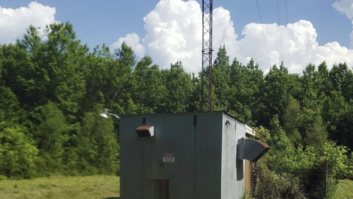‘Tis the holiday season, and the FCC is in a forgiving mood. The federal agency has given what amounts to a giant Christmas kiss to a Washington state radio broadcaster that had been facing a $20,000 fine.
The FCC issued a notice of apparent liability to Northwest Rock N Roll Preservation Society (NWS) — a non-profit group operating an adult standards station — in August 2022 for misuse of an FM translator, and for making false certifications in an application with the intent to deceive the FCC.
But, instead of being a scrooge, the FCC has decided to rescind its $20,000 fine against NWS because of the financial burden it would place on the broadcaster. The commission, however, did openly admonish NWS for “its willful and repeated” violation of FCC technical rules.
“A $20,000 forfeiture would be more than twenty times NWR’s average gross income. Not only are NWR’s average gross revenues very small but it has sustained average losses that are over three times those revenues,” the commission said in the most recent order.
NWR’s existence also depends heavily on loans from its board members, the FCC says.
“In addition, we take this opportunity to warn NWR that it could face proposed forfeitures in the future — regardless of its financial circumstances — if the forfeiture imposed herein does not serve as a sufficient deterrent, or if future violations evidence a pattern of deliberate disregard for the rules,” according to the FCC.
In its original order last summer, the commission said NWR willfully and repeatedly violated commission rules by operating translator K266BM in Olympia, Wash., at a variance from its licensed parameters between Dec. 4, 2019, and June 13, 2020. The commission in its final decision amended the dates of illegal operation to Dec. 4, 2019, through June 8, 2020.
The FCC says in 2013 it granted NWR a license to operate an FM translator at 10 watts on Channel 266 in Olympia, Wash. The 2013 license indicated that the NWR translator would be rebroadcasting KGHO(LP) in Hoquiam, Wash.
What followed were a series of modified applications from NWR, according to the background provided by the FCC.
NWR in August 2016 obtained a construction permit to increase the NWR translator’s ERP to 70 watts and change its primary station from KGHO(LP) to KGTK(AM), Olympia, Wash. Then, in 2017, at NWR’s request, the FCC modified the 2016 permit to specify an increased ERP of 250 watts.
Things were further complicated by additional petitions and applications filed by NWR. Further, the FCC granted and dismissed motions from a tapestry of filings, according to the historic timeline provided in the order. NWR blamed the six months when the translator operated out of compliance on technical issues and the pandemic.
A 2020 license application filed by NWR was met with objections from two for-profit broadcasters (Bustos Media Holdings and Bicoastal Media Licenses IV) that asserted the NWR translator was not operating as authorized, alleging NWR made false statements to the commission about its translator’s operations, and that NWR had violated the LPFM cross-ownership rule along with undergoing an unauthorized transfer of control.
The FCC rejected the Bustos and Bicoastal claims that NWR violated the cross-ownership rule and had undergone an unauthorized transfer of control, but found the non-profit had been operating K266BM without the proper authorization.
In a corresponding move, the FCC issued a decision in a related proceeding denying NWR’s petition for reconsideration to prevent Bustos from building FM translator K266CP in Auburn, Wash., which is also at 101.1 MHz. NWR, which is licensed to operate three additional FM translators, failed to convince the FCC that the Bustos translator would cause interference to its translator.
In its decision, the Media Bureau found NWR’s interference claim package was not rule-compliant.
“We again remind both Bustos and NWR that, should the Bustos Translator commence operation and cause actual interference to reception of the NWR Translator, such interference would be addressed” under a section of its rules, the FCC stated.
Those rules prohibit an authorized FM translator station from continuing to operate if it causes legitimate interference to any full-service station or previously authorized secondary station, the FCC wrote in its decision.











